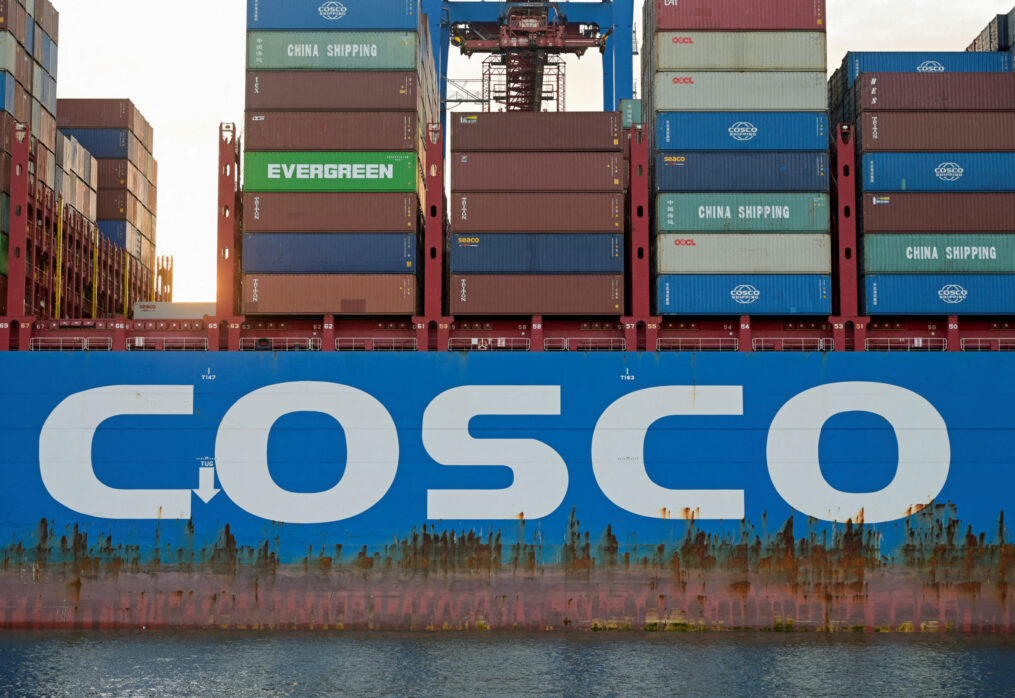A deal to sell a sizeable stake in Germany’s biggest port to a Chinese company throws Berlin into discord

Berlin is in upheaval over the decision to let a Chinese shipping giant buy a stake in Germany’s largest port, as the painful consequences of energy dependency on Russia divide European governments over their attitudes toward China.
The German cabinet approved a 24.9% stake investment by China’s state-controlled Cosco in one of three terminals owned by logistics firm HHLA (Hamburger Hafen und Logistik) in the Hamburg port, a compromise to the 35% stake initially agreed upon last September.
- The revised deal will leave Cosco with no voting rights at the port, the economic ministry said.
- Cosco already owns stakes in the two largest ports in Europe at Rotterdam and Antwerp. Cosco also owns the Piraeus port in Athens, and has a controlling stake in a terminal at the Zeebrugge port in Belgium.
- “We appreciate that a solution has been found in objective and constructive talks with the federal government,” said Angela Titzrath, the chairwoman of HHLA’s executive board.
The decision was allegedly pushed through by German Chancellor Olaf Scholz, despite concerns from other ministries that the deal would give Beijing unfair leverage over Berlin.
- Scholz, the former mayor of Hamburg, has largely stayed the course with predecessor Angela Merkel’s strong economic ties with China, Germany’s biggest trading partner, and plans to visit the Asian superpower next week along with the CEOs of Siemens and Volkswagen.
- According to Reuters, the German Foreign Ministry drew up a note rejecting the deal, pointing to the “considerable risks that arise when elements of the European transport infrastructure are influenced and controlled by China — while China itself does not allow Germany to participate in Chinese ports.”
Meanwhile, starved of Russian gas due to European sanctions over Putin’s war in Ukraine, Germany and the rest of the 27-member European Union have grown more divided over their approach to strategic foreign investment, with some criticizing Scholz’s attitudes as being naive toward China.
- At the European Council meeting in Brussels last Friday, several leaders stressed a unified voice on China amid news of Scholz’s controversial visit.
- Some EU members, however, drew a more conciliatory tone: “We shouldn’t be dependent on authoritarian regimes on critical issues such as technology…but that doesn’t mean there can’t be any economic relations with China,” said Finnish Prime Minister Sanna Marin.
- When asked about the deal, Chinese Foreign Ministry spokesperson Wāng Wénbīn 汪文斌 said that “cooperation benefits both sides” and to “stop groundless hype.”

Nadya Yeh is a Senior Editor at The China Project. Nadya got her Master’s degree at the Global Thought program at Columbia University and her Bachelor’s at Williams College. She has previously done research at the China Institute. Read more
